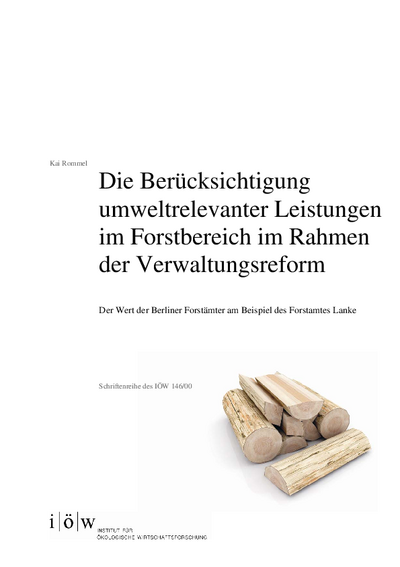Die Berücksichtigung umweltrelevanter Leistungen im Forstbereich im Rahmen der Verwaltungsreform Der Wert der Berliner Forstämter am Beispiel des Forstamtes Lanke
In the context of the intended reform of the forest administration in Berlin an examination of the cost and the monetary benefit of the forest administration of Lanke was carried out in 1997. It could be shown that the cost of this forest department are ten times as high as the monetary benefit. Yet this monetary benefit is only a part of the total output of the forest office. The other part results from the use of environmental goods supplied by the recreation site within the whole administrative area. To measure also these benefits it is required to construct hypothetical markets because these goods are common and thus they have no market prices. By using the Contingent Valuation Method the willingness to pay (WTP) for these public environmental goods could be estimated. The benefits resulting from WTP could be transformed into monetary benefit, for example in the form of an entrance fee or a parking fee. Including this the negative total saldo of the cost and benefits of the forest office Lanke decreases from 2 million to about 0,93 million DM per year. This shows the importance of measuring the WTP for public goods within the process of policy making.



